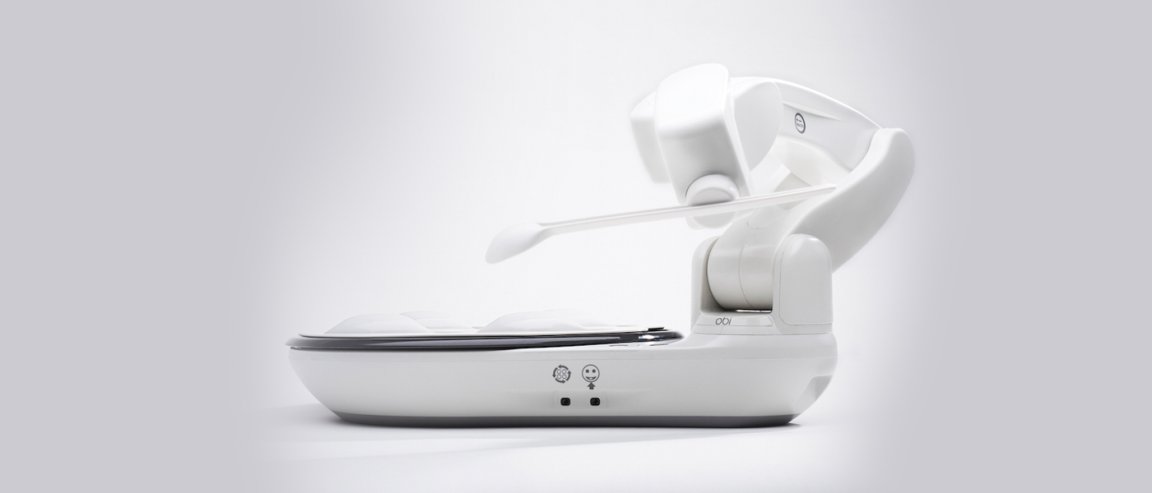
Consumer robots out in the market today are normally confined to personal assistants that remind you of things or help you with basic household work.
Enter Obi, a consumer robot that could do exactly that. Obi is designed to allow people with disabilities to get back the dignity of feeding themselves.
Having some health factor which diminishes any aspect of autonomy is an understandable source of frustration. “Every day, millions of people must be fed by caregivers, and they find the experience to be conspicuous and frustrating,” says Jon Dekar, creator of Obi.

That inspired Dekar and his father to found DESῙN, which would eventually build Obi. The robot enables people with multiple sclerosis, ALS, Parkinsons, and other diseases that impair fine motor control to eat on their own, with only minimal help from others.
The robot works by having a robot arm feed the person. A caregiver only has to “teach” the robot on the delivery location once, and then Obi can take over. Obi’s rechargeable battery works for about four hours, and can be carried around like a laptop.
The robot itself is made from BPA plastics, and the plate and spoon are dishwasher and microwave-safe. Each one retails for $4,500.
Using robotics to enrich the lives of those who may have lost some autonomy is a very noble cause. From exoskeletons to give the ability to walk back to those who’ve lost it, to others which can negate tremors in Parkinson’s patients, further development to restore lost functionality will do wonders to also maximize dignity.